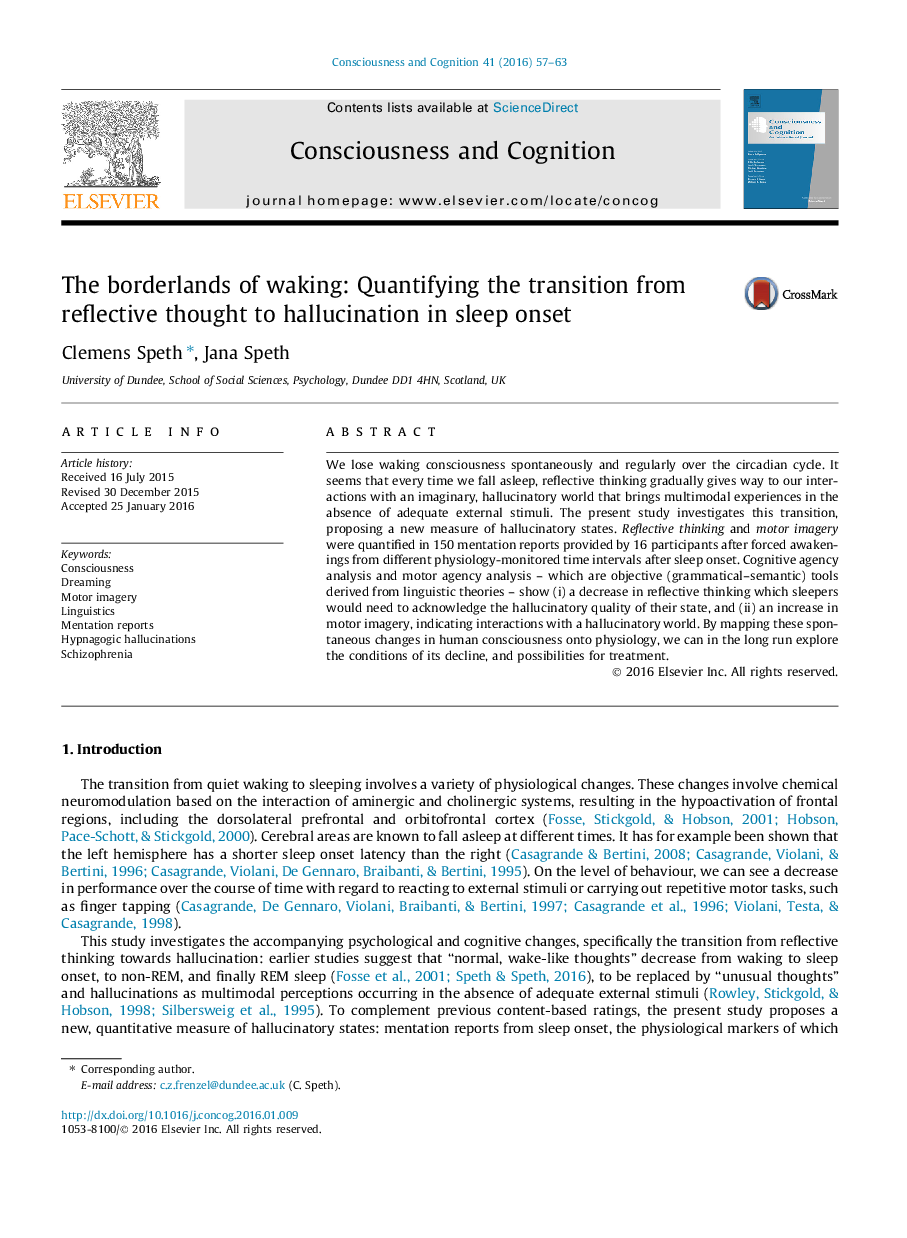| Article ID | Journal | Published Year | Pages | File Type |
|---|---|---|---|---|
| 7288656 | Consciousness and Cognition | 2016 | 7 Pages |
Abstract
We lose waking consciousness spontaneously and regularly over the circadian cycle. It seems that every time we fall asleep, reflective thinking gradually gives way to our interactions with an imaginary, hallucinatory world that brings multimodal experiences in the absence of adequate external stimuli. The present study investigates this transition, proposing a new measure of hallucinatory states. Reflective thinking and motor imagery were quantified in 150 mentation reports provided by 16 participants after forced awakenings from different physiology-monitored time intervals after sleep onset. Cognitive agency analysis and motor agency analysis - which are objective (grammatical-semantic) tools derived from linguistic theories - show (i) a decrease in reflective thinking which sleepers would need to acknowledge the hallucinatory quality of their state, and (ii) an increase in motor imagery, indicating interactions with a hallucinatory world. By mapping these spontaneous changes in human consciousness onto physiology, we can in the long run explore the conditions of its decline, and possibilities for treatment.
Related Topics
Life Sciences
Neuroscience
Cognitive Neuroscience
Authors
Clemens Speth, Jana Speth,
